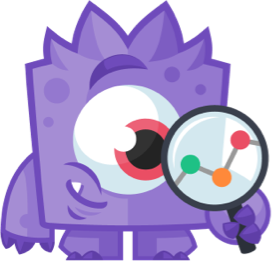In an age of rapid technological advancement, the landscape of digital transformation is continually evolving, with Artificial Intelligence (AI) serving as a catalyst for change. The introduction of AI-based operating systems (AIOS) presents a groundbreaking shift in how we manage computing environments, fostering adaptability and efficiency at an unprecedented level. This article explores the concept of Adaptive Operating Systems, the role of AIOS in digital transformation, and their potential applications across various industry sectors.
.
**Understanding AI-Based Operating Systems**
AI-based operating systems, or AIOS, integrate artificial intelligence capabilities into traditional operating systems. Unlike conventional operating systems that rely primarily on fixed algorithms to perform tasks, AIOS are designed to learn, adapt, and optimize their functioning based on user behavior, environmental changes, and system requirements. By leveraging machine learning and data analysis, these systems can autonomously manage resources, detect anomalies, and improve user experiences.
.
Recent advancements in computer science have led to the development of more sophisticated AIOS that can not only enhance existing operating systems but can also pave the way for entirely new architectures. In this context, Adaptive Operating Systems emerge as a critical innovation, allowing systems to modify their behavior in real-time based on predictive data analytics and user interaction.
.
**The Role of Adaptive Operating Systems in Digital Transformation**
Digital transformation encompasses the integration of digital technologies into all aspects of business operations, fundamentally changing how organizations operate and deliver value to customers. With the increasing complexity of IT infrastructures and the vast amounts of data generated daily, businesses face the challenge of optimizing their resources while maintaining high levels of performance and security.
AIOS can play an instrumental role in this transformation by providing adaptive capabilities that align with the dynamic nature of modern enterprise environments. These systems can automatically:
– Adjust resource allocation based on demand patterns
– Predict potential disruptions or bottlenecks in system performance
– Enhance security protocols by identifying unusual user behaviors
– Recommend software updates or changes based on usage statistics
The adaptability of AIOS eliminates the need for manual interventions, allowing businesses to focus on strategic initiatives rather than routine maintenance tasks.
.
**Industry Applications of AIOS**
1. **Healthcare**: In the healthcare industry, AI-based operating systems offer unprecedented opportunities for improving patient care and operational efficiency. For example, AIOS can analyze vast amounts of patient data to detect patterns that indicate potential health risks, enabling healthcare providers to take proactive measures. Additionally, these systems can optimize the management of electronic health records (EHRs), streamlining data entry processes and ensuring that healthcare professionals have instant access to critical patient information.
2. **Finance**: The financial sector has seen a rise in the adoption of AIOS to enhance fraud detection systems. By continuously learning from transactional data, these operating systems can identify suspicious activities and anomalies in real-time, minimizing financial losses. Moreover, AIOS can automate routine accounting tasks, analyze market trends, and provide personalized customer experiences through adaptive interfaces.
3. **Manufacturing**: In manufacturing, AI-based operating systems enable smart factories by connecting machinery, IoT devices, and enterprise resource planning (ERP) systems. AIOS can predict equipment failures before they occur by analyzing sensor data, thus reducing downtime and maintenance costs. The adaptive nature of these systems also allows for real-time adjustments in production schedules and supply chain management, leading to increased efficiency.
4. **Retail**: Retail businesses utilize AIOS to enhance the customer experience by personalizing interactions based on individual preferences. These systems can analyze purchasing patterns to provide tailored recommendations and optimize inventory levels to ensure product availability. Furthermore, AIOS can enhance marketing strategies by predicting customer behaviors and trends.
.
**Technical Insights into AI-Based Operating Systems**
The architecture of AI-based operating systems incorporates advanced algorithms rooted in machine learning and artificial intelligence. Key components of AIOS include:
– **Predictive Analytics**: This allows the system to anticipate user needs and system requirements by analyzing historical data and usage patterns. Predictive capabilities lead to improved resource allocation and operational efficiency.
– **Machine Learning**: AIOS utilize machine learning techniques to refine their functions based on ongoing interactions. The system continuously learns and adjusts its behavior, resulting in a seamless user experience and optimized performance.
– **Natural Language Processing (NLP)**: Incorporating NLP allows users to interact with the operating system through voice commands or conversational interfaces. This enhances accessibility and user engagement.
– **Security Layers**: AIOS integrate advanced security mechanisms that utilize anomaly detection to safeguard against cyber threats. By constantly analyzing user behavior, these systems can alert administrators to potential breaches before they occur.
.
**Challenges in Implementing AI-Based Operating Systems**
Despite the potential advantages of AIOS, several challenges must be addressed for successful implementation:
1. **Data Privacy Concerns**: As AIOS inherently rely on extensive data collection for training and optimization, organizations must navigate potential privacy concerns and ensure compliance with regulatory frameworks such as GDPR.
2. **Integration Complexity**: Implementing AI-based operating systems within existing IT infrastructures can be complex, requiring a roadmap for phased integration and effective change management.
3. **Skill Gaps**: Organizations may face skill shortages in AI and data science, hindering their ability to effectively implement and maintain advanced operating systems.
.
**AIOS Case Study: Transforming the Automotive Industry**
A notable case study highlighting the impact of AIOS is visible in the automotive industry, particularly with the rapid development of autonomous vehicles. AIOS are being employed to create an adaptive environment where vehicles can analyze real-time road conditions, predict maintenance needs, and enhance driver safety.
For instance, a leading automotive manufacturer has integrated an AIOS in its fleet of connected vehicles. The operating system continuously collects data from various sensors and applies machine learning algorithms to optimize navigation, fuel efficiency, and traffic predictions. This adaptive technology not only improves the driving experience but also contributes to the overall safety and reliability of autonomous transport.
.
**The Road Ahead: Embracing AIOS for Future Readiness**
As organizations and industries evolve in this digital-first world, the adoption of AI-based operating systems represents a strategic move toward greater efficiency and adaptability. Companies that leverage AIOS will not only see enhanced operational capabilities but also gain a competitive edge in their markets.
To prepare for the future, businesses must invest in AI training, secure their data, and embrace the opportunities that come with integrating AI technologies into their infrastructure. With the potential of AIOS being harnessed, there is no doubt that the next generation of operating systems will redefine the way we interact with technology, providing dynamically responsive and intelligent computing environments.
.
**Conclusion: The Transformational Impact of AI-Based Operating Systems**
AI-based operating systems are set to redefine the digital landscape, ushering in an era of adaptive technologies that respond to user needs and system requirements in real-time. The integration of AI with operating systems promises to enhance performance, security, and user experiences across multiple industries.
In navigating the complexities of digital transformation, AIOS stand as a cornerstone solution that not only meets present-day challenges but also prepares organizations for future innovations. As we continue to explore the possibilities of AI, the role of AIOS in shaping the future of computing cannot be underestimated.
.
**Sources**
1. “The Rise of AI-based Operating Systems: Transforming the Digital Landscape” – TechCrunch
2. “AI in Healthcare: Revolutionizing Patient Care with Adaptive Technology” – Harvard Business Review
3. “AI-based Fraud Detection Systems and Their Impact on the Financial Sector” – Journal of Financial Compliance
4. “Smart Manufacturing: How AI is Revolutionizing Production” – McKinsey & Company
5. “AI-Powered Retail: Personalization and Enhanced Customer Experience” – Retail Industry Insights
.




























